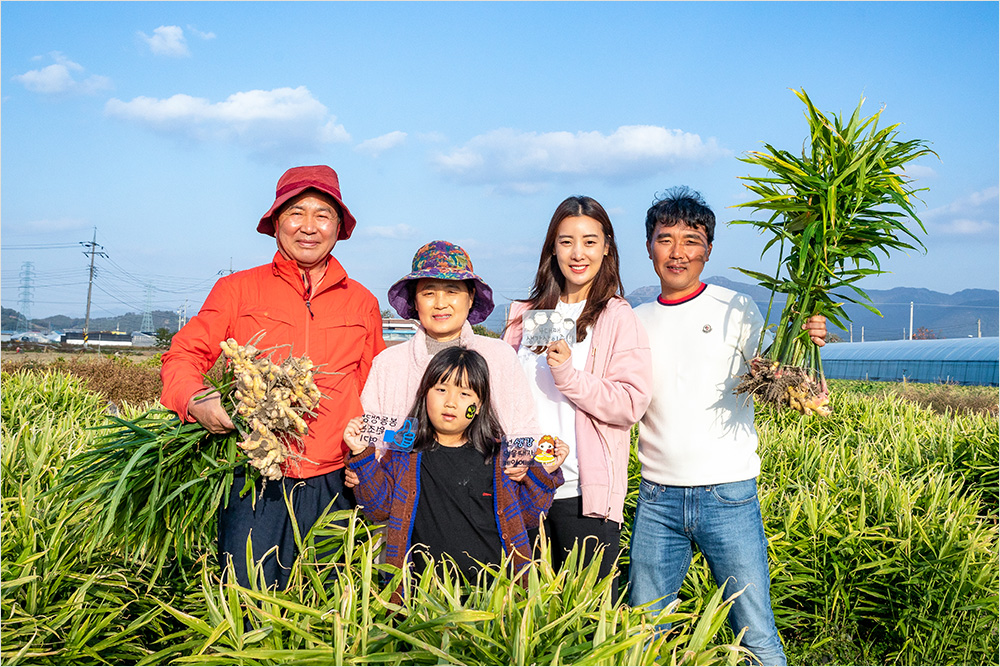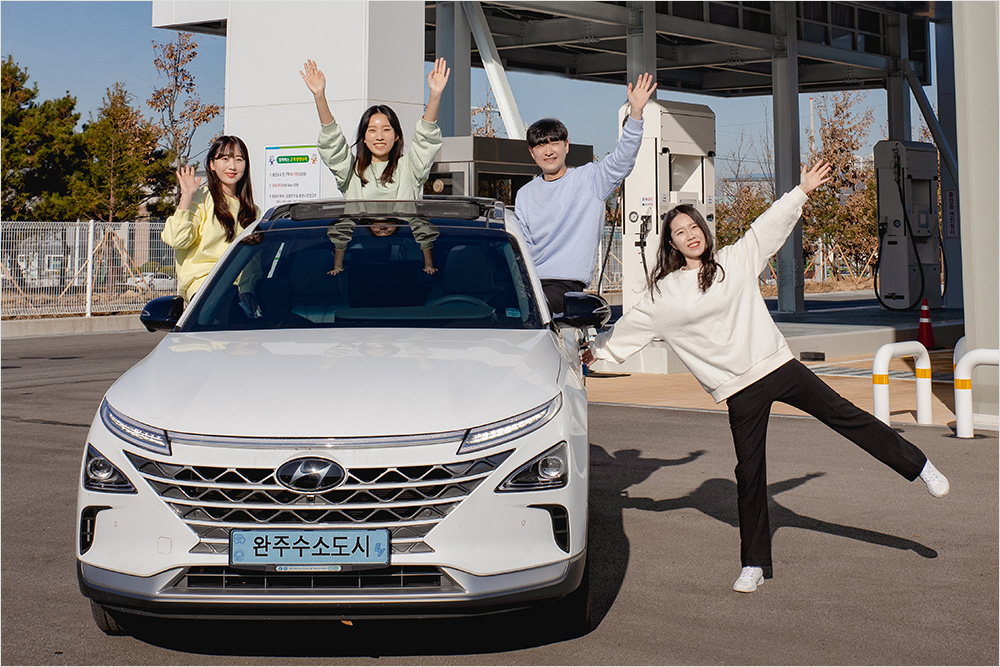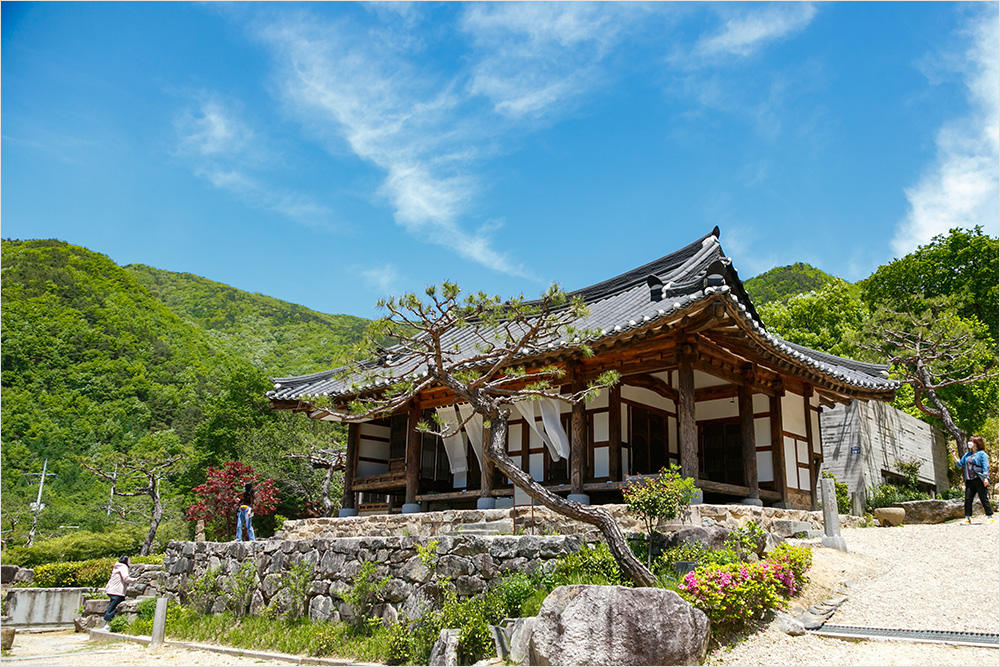Wanju Tour
Wanju Tour
Shall we visit Wanju, the city of hydrogen, local food, and sentient travel?
2021.12.16
The city in Korea where the local food project was born
Wanju-gun is the place in Korea where the local food business began. About a decade ago, Wanju-gun declared the nation's first full-scale local food business under the banner of "happy dining tables for both the producers and consumers."
Local food is a key project for low-carbon green growth as a practical alternative to overcome the harmful effects of global food, which has caused big side effects such as mass carbon emissions, faceless transactions, and the collapse of small farms.
There are three reasons for the success of Wanju local food. The first is the planned production of food. In other words, the money-making single crop mass production was transformed into a multi-crop small quantity production system. The next is the strong consensus on the phrase ‘healthy tables makes happy tables’ both producers and consumers make. The third and last is to establish and operate a public organization that integrally supports communication between the participating parties, such as production, processing, and logistics, to revitalize local food. Based on the revitalization of the social economy, public organizations are promoting the revitalization of village communities, urban and rural exchange promotion projects, and support projects to help returnees and new rural settlers. Due to the local food project, Wanju-gun has enjoyed the effects of promoting villages’ independence in the community growth, stable income in rural areas, and jobs, and has been recognized as the No. 1 city of farmers who return home or come to farm in rural areas.

Wanju-gun, the leading location of the Korean hydrogen economy
The hydrogen economy is one of the core issues of the future economy, which Wanju-gun has concentrated on. Wanju has been emerging as a key base for the future hydrogen economy. As large-scale investments and mutual cooperation among companies are actively taking place, and the hydrogen industry ecosystem is established in earnest, Wanju-gun is becoming the center of the hydrogen supply network.
To this end, Wanju-gun is building infrastructure for the hydrogen industry at full speed. Wanju-gun, a hydrogen pilot city, is expanding its hydrogen industry infrastructure opening the nation's largest hydrogen charging station in 2020, attracting a ‘Hydrogen Goods Inspection Support Center’ in 2021, and immediately confirming the construction of Jeonbuk's No. 1 hydrogen production base.
The ‘Hydrogen Goods Inspection Support Center’ is constructing the examination lab and set up equipment for the implementation of safe management of hydrogen supplies and facilities. In addition, by 2022, the project to ‘construct a small-scale hydrogen production base’ is expected to begin. With this project finished, it can produce hydrogen through hydrogen extractors and provide the product to its charging stations, which has significance in that it is the first hydrogen production base in Jeollabuk-do.
In addition to production facilities, Wanju-gun introduced the 1st hydro-electric bus for the first time in county-level governments. The hydro-electric bus, which is also called a running air purifier, is equipped with seat belts, and low boarding steps with a wheelchair boarding system, and can travel about 430 kilometers on a single charge.

A sentient travel city given the thumbs up by BTS
Wanju is a ‘sentient travel city’ embracing clear nature, high-quality culture, and original local food. Including Daedunsan Provincial Park, Gosan Natural Recreational Forest, Hwaam-sa, and many others, Wanju is full of tourist destinations located in clear and pure nature. It is also full of local tasty produce including Bongdong’s ginger, Samrye’s strawberries, Gyeongcheon’s dried perssimons, Iseo’s pears, and many others.
You can also see the Korean traditional style of house, Hanok, an eco-friendly building made of soil, stone, wood, and roof tiles. Representative places are Awon Old House and Oseongok Village. Awon Old House, which has gained popularity since BTS took videos and pictorials for the "2019 Summer Package in Korea," is a ‘Hanok Stay’ space meaning "our garden". With the deep ridge of Jongnamsan Mountain, this place embodies the harmony of the architectural philosophy of a 250-year-old hanok and modern buildings, giving visitors a time for rest and meditation.
Around Awon old house, 22 hanoks are gathered to form Oseong Hanok Village. This hanok village, cozy and snug surrounded by several mountains, is lined with Soyang Old House and Jukrimwon for Hanok Stay, as well as many thematic cafes such as Flicker Bookstore and O’s Gallery.
In addition, there is the Oseongje Reservoir, where a pine tree, also known as BTS Pine Tree, stands, and the cultural and ecological forest trail there are well established, making it a rising tourist destination recently. Additionally, ‘Mountain Lighthouse of Complex Cultural Space,’ ‘Gyeongcheon Eco-Ville, and Hwaam-sa (temple)’ are very famous tourist destinations. Further, ‘Gyeongcheonaein Stepping Stones’ is gaining popularity as a travel destination for pet families nationwide.




